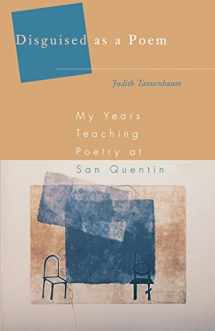
Disguised As A Poem: My Years Teaching Poetry at San Quentin
Book details
Summary
Description
When Judith Tannenbaum last met with her poetry writing class at San Quentin prison, one of the students commented, "Now I'm going to give you an assignment: write about these past four years from your point of view; tell your story; let us know what you learned." This beautifully crafted memoir is the fulfillment of that assignment.In stirring and intimate prose, Tannenbaum details the challenges, rewards, and paradoxes of teaching poetry to maximum-security inmates convicted of capital crimes. Recounting how she and her students shared profound and complicated lessons about humanity and life both inside and outside San Quentin's walls, Tannenbaum tells provocative stories of obsession, racism, betrayal, despair, courage, and beauty. Contrary to the growing public perception of prisoners as demons, the men in this poetry class-Angel, Coties, Elmo, Glenn, Richard, Spoon-emerge not as beasts or heroes but as human beings with expressive voices, thoughts, and feelings strikingly similar to the free.Tannenbaum provides revealing views of conditions in the cellblocks and shows how the realities of prison life often paralleled her own life experiences. She also relates such events as visits to her group by prominent poets (including Nobel Prize-winner Czeslaw Milosz); a prison production of Waiting for Godot sponsored by Samuel Beckett himself; and the presentation of her students' work to a class of sixth and eighth graders, who connected to the prisoners' words by writing their own poems to the inmates.


We would LOVE it if you could help us and other readers by reviewing the book
Book review




